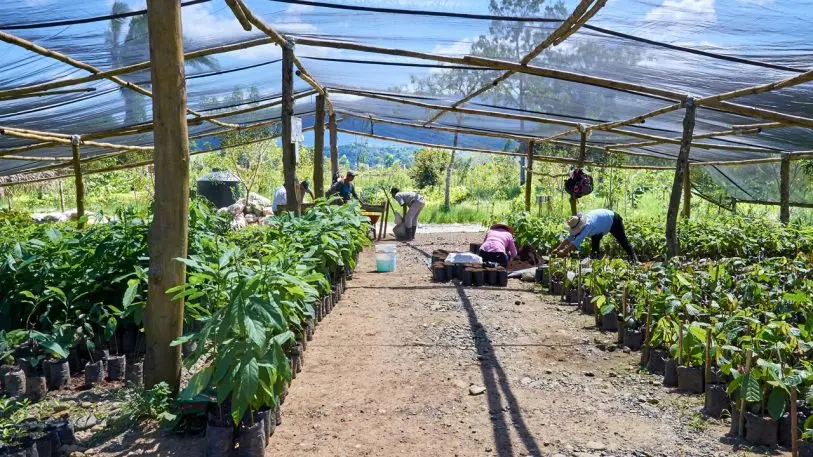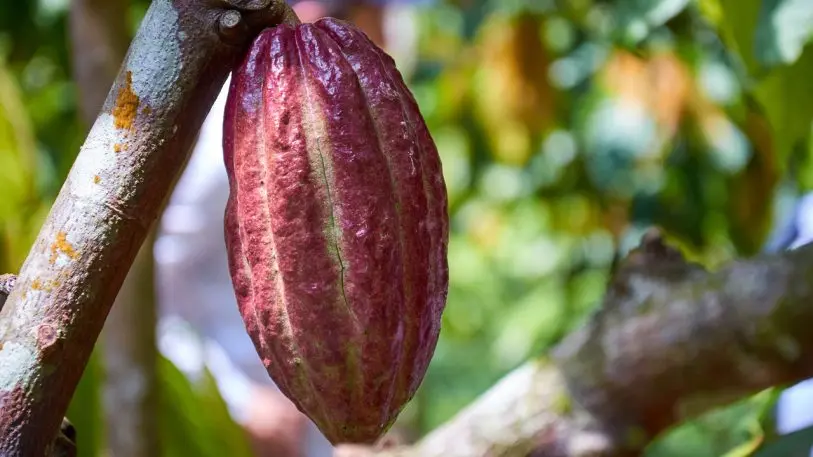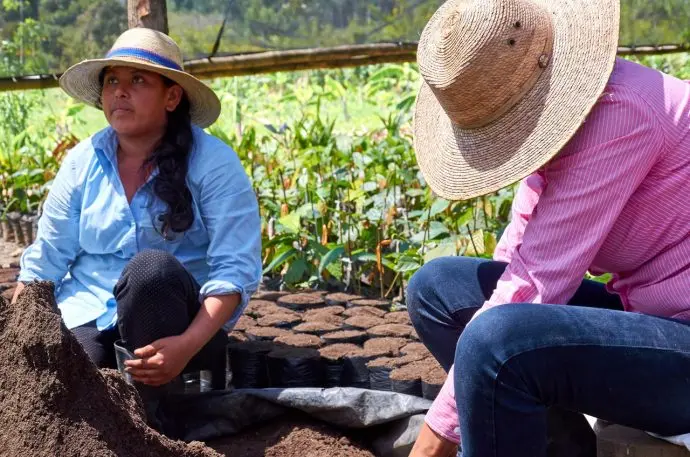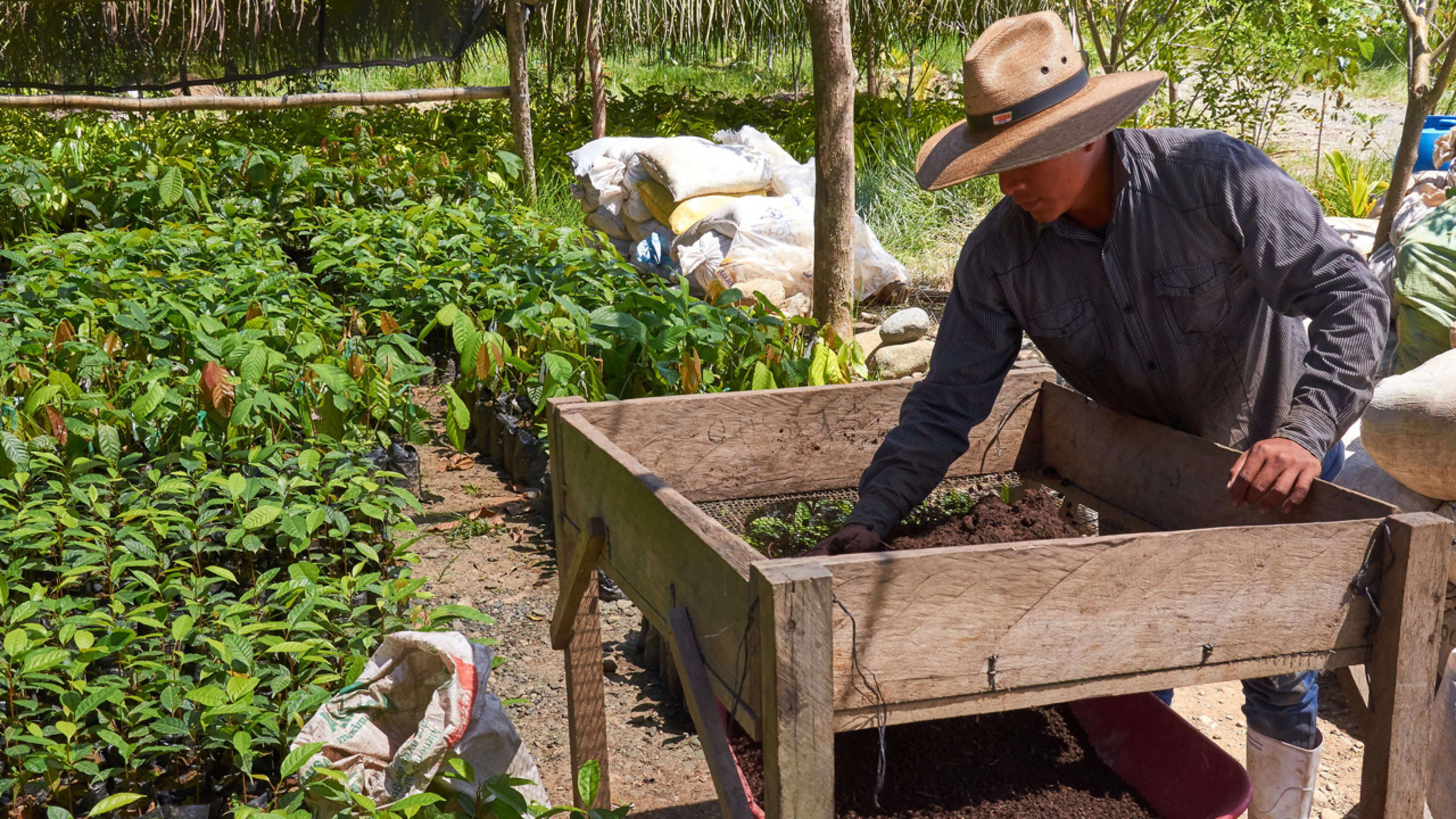Between 1990 and 2005, 17% of Guatemala’s rainforests have been cleared to make way for palm oil plantations and cattle farming. These monocultures have drained the country’s soil of nutrients and resulted in eroded land and loss of biodiversity. There’s a simple solution to starting to fix these issues: protect the land that has not yet been claimed by palm oil and cattle farmers, and use it to re-establish local plants that could restore its vitality.
The Sustainable Lush Fund (or SLush Fund), run by the natural beauty company Lush, invests in agricultural projects around the world that both help renew local economies and land, and provides a supply chain from which Lush can source for its products. To date, the SLush Fund, which the company funds by setting aside 2% of what it spends on raw materials and packaging, has invested $5.1 million in community agriculture projects across 21 countries. Doing so “gives our buyers the opportunity to seek out positive, empowering relationships with growers, while they maintain sustainable practices and create fair wages and working conditions for their workers,” according to the Fund’s site.

Guatemala, says SLush Fund manager Gavin Hollett, was an ideal place for Lush to grow the Fund’s impact. The climate of the country is conducive to growing many crops, like avocado, that Lush uses in its products. “It’s also had a rough time with environmental degradation as a result of commercial deforestation and natural disasters,” Hollett says. While visiting the country in 2015, Hollett and his team learned of a 225-hectare former cattle pasture that had fallen into disrepair and was likely going to be sold off to a palm oil company. Instead, Lush purchased the land for around $1 million, and has been re-introducing native crops like mahogany, vanilla, and cocoa.

However, Lush is not doing this work in Guatemala in isolation. They’ve partnered with a local organization, Izabal Agro Forest, that’s been working on reforestation efforts in the country since 1992. The family-run organization has been helping bring back crops like tropical cedar and mahogany to degraded lands, and assisted Lush in planting those crops on the former cattle pasture in a way that will maximize growth and soil health. “We want to create and manage high-value plantations that conserve and protect threatened species while benefiting the people and environment with whom we operate,” IAF writes on its website.

The local farmer partnership system is intended to be a catalyst for re-diversifying the biology of the whole region. Often, for smallholder farmers, working with crops like vanilla and mahogany, while beneficial to their lands, poses a financial difficulty. Not only are they expensive to source and plant, but they take a few growing seasons before they’re able to see a return on investment from selling the crops. By supporting farmers as they introduce these crops, Hollett says the SLush Fund “takes the pressure off short-term results and allows farmers to focus on the long-term, which in the end will be better for the environment.” The efforts in Guatemala are still scaling up; the crops are still too young for Lush to begin incorporating them into their products. But once they’re able to harvest them, the hope, Hollett says, is for around 20% of the crops they source to come from the 225-hectare farm Lush manages, and for around 80% to come directly from the smallholder farmers to support their livelihoods.
Recognize your brand’s excellence by applying to this year’s Brands That Matter Awards before the early-rate deadline, May 3.
